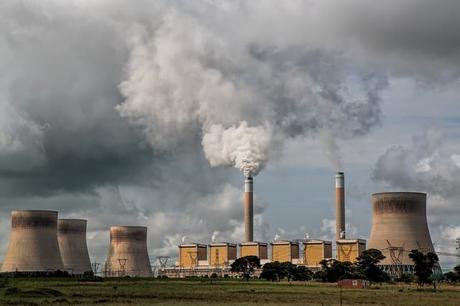Finally, Germany decided to put an end to the generation of power in the country’s coal power stations by 2038. The decision was long awaited and of course, has significant effects in future especially looking at Europe’s attempts to meet targets of Paris Agreement 2015.
In north-western Europe, Germany is the last major bastion of coal-burning, considering the fact that 40% of Germany’s power still comes from dirtiest fossil fuels compared with 5% to that in the UK, which thankfully plans to phase out fuel by 2025 completely.

German coal exit commission agreed to an end date of 2038 after overnight talks. The commission includes 28 members from politicians, industry, and NGOs, working on thrashing out a timetable for ditching coal power since last summer. There will be another review in 2032 to decide if the deadline can be brought forward to 2035.
Angela Merkel, an adviser to the German Chancellor, and Hans Joachim Schellnhuber, a member of the commission, said: “This is an important step on the road to the post-fossil age – a step that also opens up new perspectives for the affected regions through innovation-driven structural change.” However, according to him, it was difficult for them to reach a consensus on phasing out coal in the earliest possible time.
A coal expert at the Climate Alliance Germany network, Stefanie Langkamp cautiously welcomed the decision.
According to Stefanie “It is good that the long-overdue entry into the coal phaseout is now beginning and that new perspectives are being developed in the regions. Measured against the climate crisis, however, the coal phaseout should have been much more ambitious.”
RWE, which operates many coal plants of the country said in a statement that the proposals: “would have far-reaching consequences for the German energy sector and in particular for RWE.” As per RWE, the date 2038 was “far too early” for the company, and there would possibly be a chance of extension of final end date in the 2032 review.
The chief executive of RWE, Rolf Martin Schmitz, warned about the “serious consequences,” the plan would have for the lignite or brown coal business of the company.
There was a demonstration urging against a hasty phaseout by the Coal union members at a coal exit commission meeting in Berlin.
On the same day, thousands of school children took part in a protest in the German capital, demanding the end of coal to tackle global warming.
The Guardian witnessed a 336-page final document agreed by the coal commission, with plans of Germany to minimize its 42.6GW of coal power capacity to about 30GW by 2022, leading to around 17GW further reduction by 2030. Next Friday the deal will get published officially.
Greenpeace wanted an end date of 2030; however countries other than environmental groups supported a 2035 cut-off instead. In a poll conducted by the broadcaster ZDF, almost three-quarters of 1,285 Germans people found to believe in the emergence of a quick exit from coal.
Dave Jones, a power analyst at the London and Brussels-based thinktank Sandbag, said: “2035 is really the ambitious solution. The bigger question is about how quickly it happens [for example, interim goals].”
As per the commission, Germany’s backup power of choice would be gas, rather than coal, making it more similar to the energy system of UK in the near future.
Last week in Davos Merkel said, with the decision of the country to ditch coal and close its last nuclear plants in 2022, “we will need more natural gas, and energy needs to be affordable.” The goal of her government is to increase the share of renewables in electricity supply from 38% today to 65% in 2030.
However, the cost of compensating energy firms for shutting coal plants before the end of their operating life has been one of the most controversial issues until now.
Thomas Bareiß, the German energy secretary, welcomed the decision and said the move away from coal was necessary but at the same time a “very expensive transition.” Although the industry had expected €60bn as compensation, about €40bn will be awarded to them under the commission’s plans.

